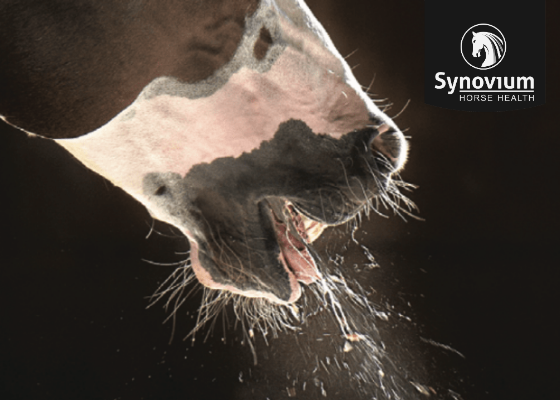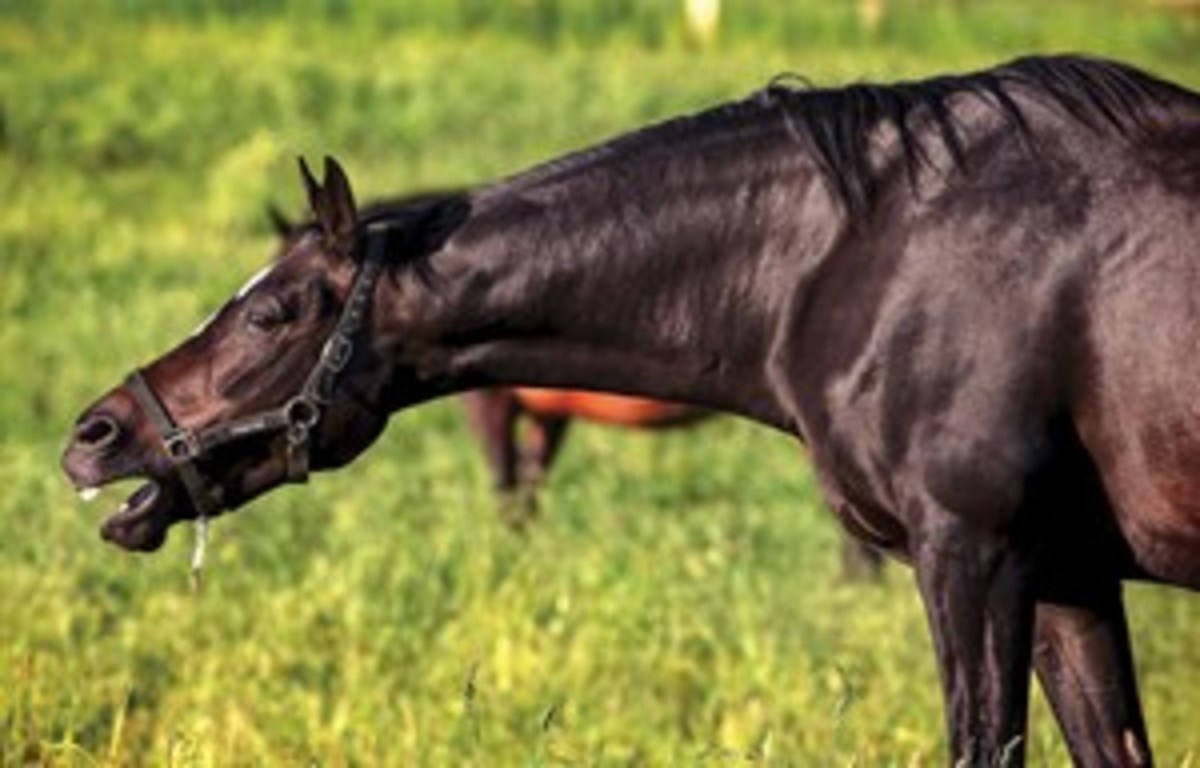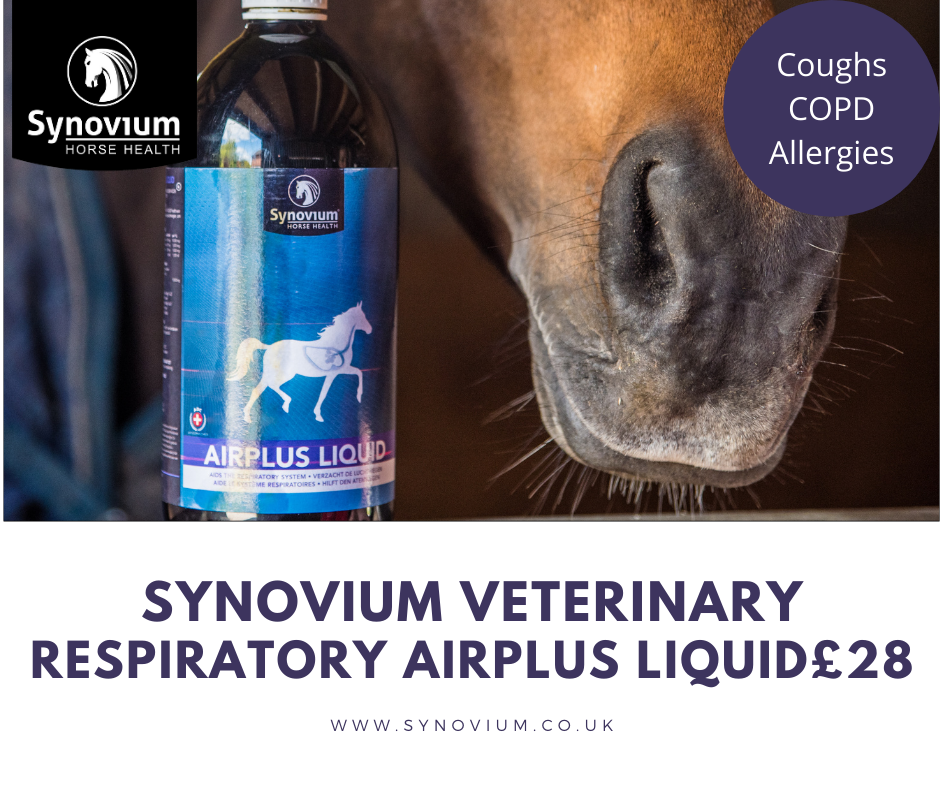Posted: 6th May 2021 | Back to news feed

The respiratory system is extremely important to the horse, especially competition horses, where a compromised respiratory system can limit a horse’s athletic career.
It is an extremely large organ which primarily works to exchange oxygen for carbon dioxide which is distributed around the body in the blood. The respiratory system consists of both the large and small airways and the horse’s lungs.
When a horse breathes in, air travels down the trachea, which divides into the right and left bronchi tubes, then into the smaller airways called bronchioles, located in the lungs.
The bronchioles end in the small sacs called alveoli, where the barrier between the air and the blood is a thin membrane.

Did you know?
Horses are nasal breathers and do not usually breathe through their mouths. Because of this, the horse’s nasal passages are large and can expand rather a lot during strenuous exercise to increase the intake of air required.
Respiratory-related health conditions are the second-leading cause of poor performance in athletic horses.
At a canter / gallop, horses take one breath in time with one stride. This is referred to as respiratory-locomotory coupling. So, when something affects the horse’s breathing it has the potential to shorten the horses stride.
Why does Respiratory disorders occur?
Lung and respiratory disorders are often caused by virus infections, bacteria, fungi, or inhalation of irritants or toxic substances.
Viral respiratory infections can have a lasting effect on the respiratory systems defence mechanisms, making the horse more susceptible to additional problems.
Inflammatory airway disease is known for causing excessive mucus in the airways and poor performance in young horses. Often due to viral respiratory infections, allergies, and environmental factors.
Reactive airway disease (heaves) is triggered by exposure to dusts, mainly in older horses that are susceptible to allergic airways disease.

Signs of respiratory disease
• Discharge from the nose (mucus, pus, or blood, depending on the cause)
• Coughing (Including dry coughing or including mucus or blood)
• Rapid breathing while at rest
• Laboured breathing; shortness of breath
• Discomfort when breathing.
• Noisy breathing
• Head shaking or abnormally low head carriage.
Treating and Managing Respiratory disorders in horses
Firstly, veterinary advice should always be sought if you are concerned about your horse’s respiratory system.
Vets can help diagnose the underlining issue and help treat the problem by controlling infection, thinning secretions, and when possible, improving drainage and mechanically removing any infectious material.
Vets can also provide treatment with expectorants (which help an animal to cough up the secretions), cough suppressants, bronchodilators (to help open airways), antibiotics, diuretics (to reduce fluid build-up), and other drugs.
However, environmental factors and supportive care are especially important to aid recovery and prevent re occurring issues. Clean and dust free stables which are well ventilated should be provided for all horses.
A natural aid can also be given to help symptoms of respiratory diseases, such as coughing and excess mucus build up. Ideal for when horses have on going issues, recovering from a respiratory disease or to help support horses with allergies.
Synovium® Airplus Liquid has been carefully developed by leading vets to help support horses with respiratory disorders. The unique formula contains all-natural ingredients know for supporting optimal functioning of the respiratory system.
Containing Potassium iodide, Eucalyptus oil, Rosemary, Thyme and Aniseed all known for effectively clearing the airways and excess mucus whilst helping to sooth the respiratory tract and support free breathing.
Extensively trialled and tested, Airplus Liquid is a popular supplement loved by vets and owners across the UK and Europe.
https://www.synovium.co.uk/products/horse-respiratory-airplus-liquid/

The Equestrian Index newsfeed is compiled from articles submitted by advertising members and expresses the opinions of those members. Watsons Directories Ltd shall not be held liable for any inaccuracies or mis-statements therein.
